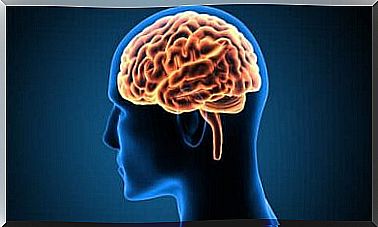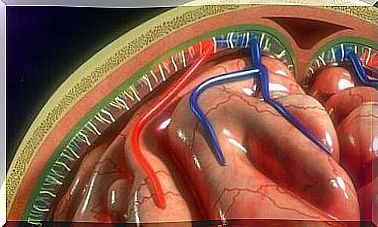The Different Stages Of Alzheimer’s Disease

Current medical literature indicates that the causes of the onset and stages of Alzheimer’s disease are multiple and complex. Of these, age is the most important risk factor that cannot be changed. On the positive side, research on this condition has been constant for decades. In fact, it has made it possible to confirm that there are many stages in terms of development and diagnosis.
In fact, cognitive and behavioral deterioration are characteristic of this neurodegenerative disease. The outbreak is usually insidious. For example, it is a condition that develops slowly and gradually, so that the symptoms are not clear at first. Thus, the course is progressive and mainly affects older adults.

Preclinical phase of Alzheimer’s disease
This phase is based on evidence that the pathological process of this disease begins years before the clinical manifestation. Hence the insidious start as described in the previous section. Consider the importance of this stage to discover treatments that can prevent further deterioration or even slow development.
This is the least studied stage so far, although it is clearly a stage where molecular changes leading to a process of neuronal degeneration begin to occur. However, these changes are not yet bad enough to cause symptoms. Therefore, preclinical Alzheimer’s refers to a stage where a person is still asymptomatic.
The stages of Alzheimer’s disease
The stages a patient with this disease undergoes should be a general guide. This is because Alzheimer’s affects each person differently.
Some people may experience symptoms more or less intensely or just go through these steps differently. Thus, there are three stages of Alzheimer’s disease after diagnosis:
Early stage
At this stage, a person still functions independently and autonomously. They can run errands, attend social events and work. However, they may begin to experience memory loss and forget some words they use regularly. They may also spend more time looking for everyday objects because they cannot remember where they left them.
At this point, people in their immediate environment may begin to notice a decrease in memory or difficulty concentrating. In addition, based on clinical criteria, their physician may conclude that the disease is beginning to manifest itself.
Middle school
This stage of Alzheimer’s disease can continue for several years, so it is long lasting. The person with Alzheimer’s will probably require more attention as the years go by. This is because their neuronal changes make it harder for them to express thoughts or feelings properly and to perform daily tasks.
It is common for these patients to be in a bad mood and frustrated and angry for no apparent reason. Also, their personality or behavior may change and they will behave unexpectedly (for example, not wanting to take a shower). It is common for a person with Alzheimer’s to mix words or not remember important details in life during this stage. In fact, they may forget their phone number, their wedding date, the university they went to, where they live, and even what year it is.
This increases the risk that they lose track of time and space and become disoriented and thus lost. Therefore, it strongly affects their need for more attention and a caregiver.
Final stage
The most severe stage of Alzheimer’s disease greatly inhibits the ability of these individuals to communicate with the environment. They may not be able to follow a conversation, articulate words, control body movements or even swallow.
This results in their need for continuous assistance in performing daily activities such as care. In the same way , their cognitive abilities deteriorate, and their vulnerability to certain infections such as pneumonia increases.

The importance of diagnosis in the early stages of Alzheimer’s disease
Life expectancy and quality of care have both increased in recent years. Therefore, one can expect a greater incidence of this type of neurodegenerative disease in the future.
In this connection, one of today’s research lines is early diagnosis, given that the stages of Alzheimer’s disease have already been understood. Health benefits for these patients will reflect on many levels and directly affect the quality of life. This is because they would reduce the cognitive impairment that is characteristic of this condition.









